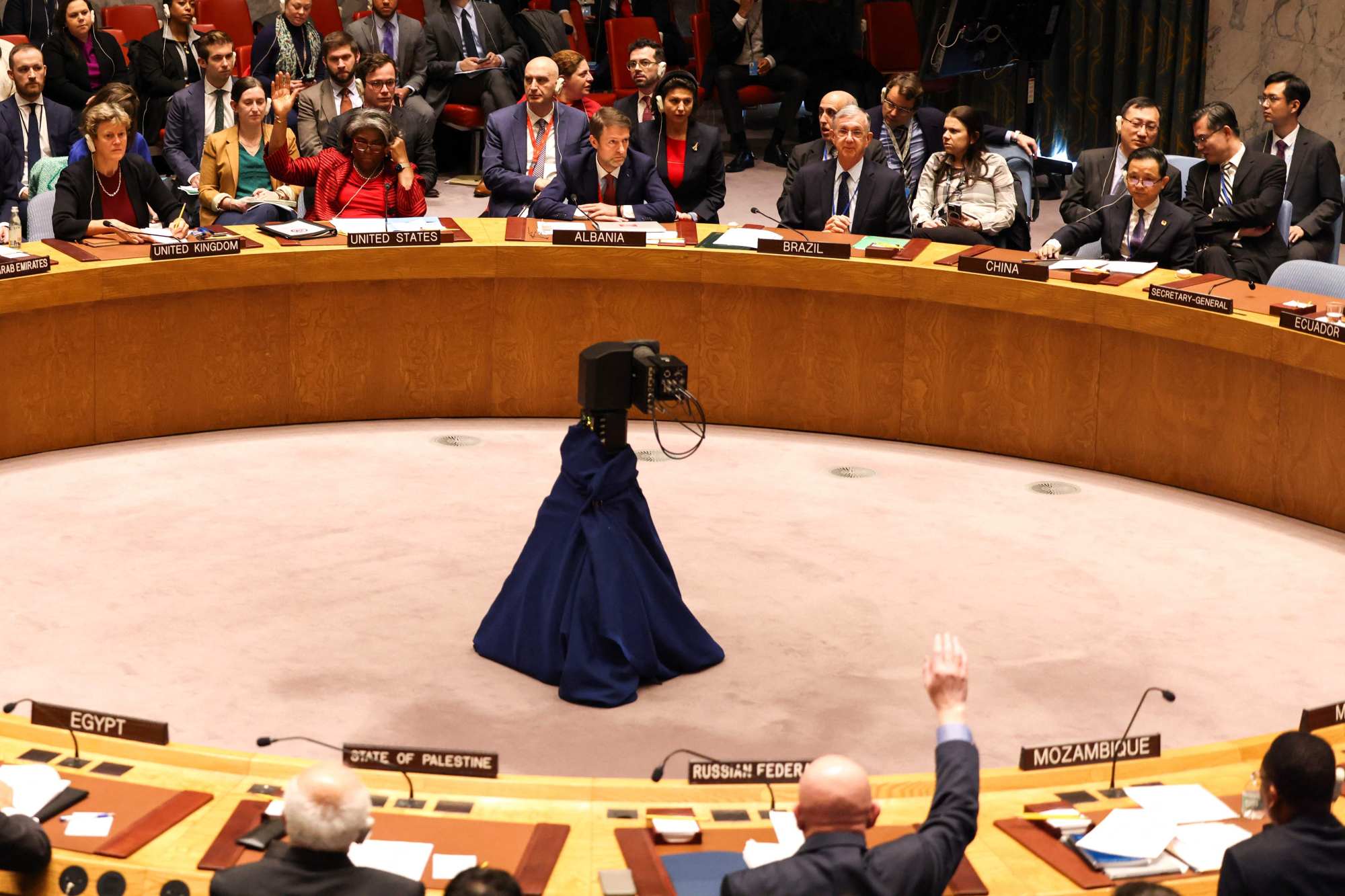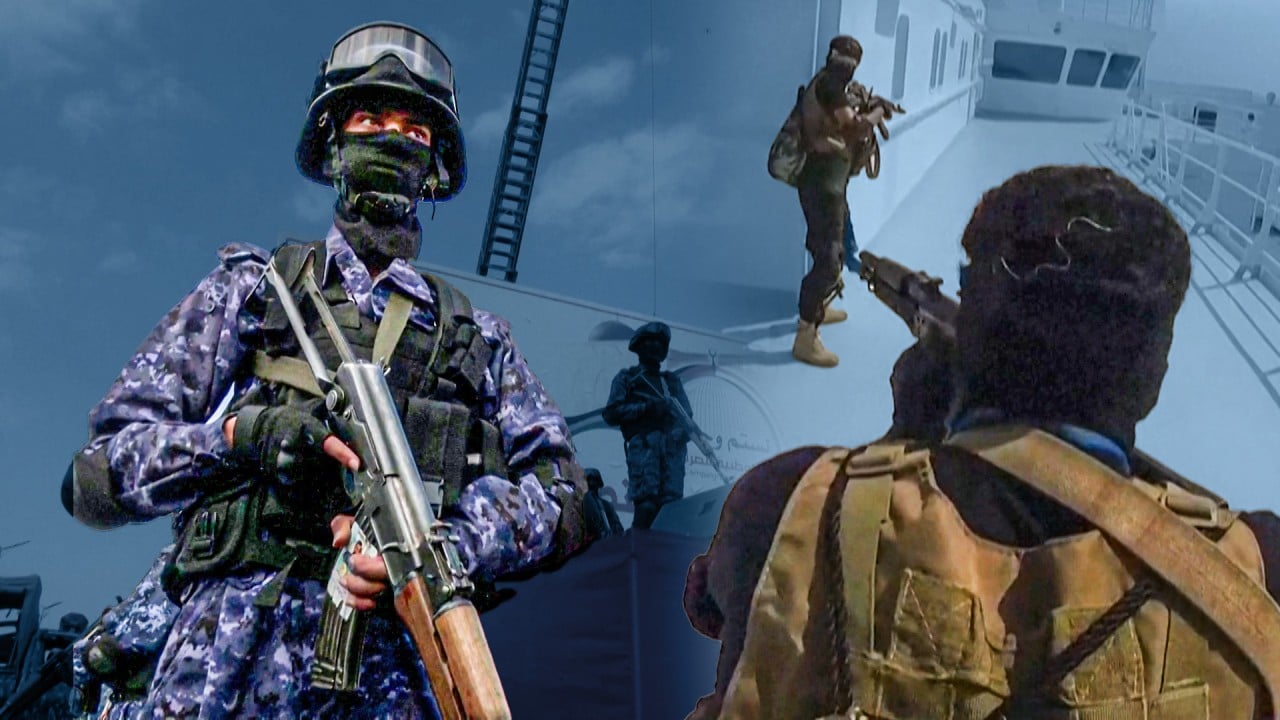Quite predictably, the results of Israel’s disproportionate military retaliation have been devastating. The UN said 70 per cent of more than 22,000 Palestinians killed in Gaza are women and children and about 85 per cent of Gazans have been displaced. About 70 per cent of residential buildings in Gaza have been levelled, and half of its population of around 2 million now face starvation.
The key factor behind the marginalisation of the Security Council in the current Gaza conflict has been the stance of its most powerful member, the US. Washington has a long history of using its veto to support Israel at the United Nations. It has blocked 53 Security Council resolutions relating to Israel in the past 50 years, including the two Gaza resolutions last year.
As well as staunch diplomatic support, the Biden administration has pledged, on top of an annual US$3.8 billion military aid package for Israel, to send Tel Aviv what it needs to “defend itself”. In early November last year, the US House of Representatives approved a Republican proposal to provide over US$14 billion in additional military aid to Israel.
In effect, the Biden administration’s carte blanche support for Israel’s right of self-defence has frustrated international diplomatic attempts to halt a conflict that has killed thousands of innocent people in Gaza and clearly does not respect humanitarian law.
A more important question for an increasingly interconnected world in the 21st century is why questions of war and peace rest almost entirely on the whims of the five permanent members of the Security Council?

It should be recalled that the founders of the UN in 1945 conferred the right of veto on the five great powers of that time to ensure they remained in the organisation and helped to solve the world’s problems.
But about 80 years on, it is clear that great powers cannot run today’s world, even if they have the political will, because many of the challenges facing states in the security, health, environmental or economic spheres do not respect borders and are simply too big even for powerful states to resolve, whether acting alone or with a few allies.
To be sure, great powers like the US can block Security Council resolutions calling for a ceasefire in Gaza and provide impressive amounts of military aid to the Netanyahu government.
4 reasons Biden’s support for Israel’s Gaza war is hurting America’s reputation
4 reasons Biden’s support for Israel’s Gaza war is hurting America’s reputation
But the international costs of the Biden administration’s Gaza approach clearly outweigh its benefits. These costs include undermining the US’ global standing and increasing the prospect of long-term insecurity for Israelis, Palestinians and the Middle East.
In essence, the disastrous Gaza situation confirms that the use of veto power by the Security Council’s permanent members is largely incompatible with the broader goal of maintaining international peace and security in the 21st century.
At present, global security matters are hostage to the interests of the five permanent members. Without curtailing the use of the veto or significantly increasing the power of the UN General Assembly, it is difficult to envisage any real improvement in the security of the world.
The five permanent members will obviously be reluctant to lose their veto privileges but pressure from the wider UN membership could yet force a new arrangement whereby General Assembly resolutions with two-thirds support or more become binding and not subject to a veto.
Robert G. Patman is an inaugural sesquicentennial distinguished chair and a specialist in international relations at the University of Otago


